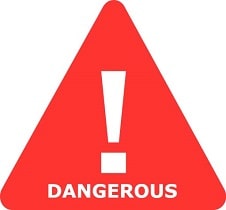Aramis Lab Series Power Protector Broad Spectrum Spf 50 while Breastfeeding

What is Aramis Lab Series Power Protector Broad Spectrum Spf 50 used for?
Purpose: Active Ingredient Purpose Avobenzone 3.00% Sunscreen Homosalate 5.00% Sunscreen Octisalate 5.00% Sunscreen Oxybenzone 3.00% Sunscreen
Is Aramis Lab Series Power Protector Broad Spectrum Spf 50 safe to use while breastfeeding? Can it interfere with growth and development of my kid?

Avobenzone and Breastfeeding
SafeNot much study has been done on effects of topical usage of Avobenzone during breast feeding however it is known to penetrate the skin in very limited quantity. Its not very likely to have adverse effects in breastfed infants.
Note: Study and data for tropical use only, Breakdown product causes relatively high rates of skin allergy hence stabilization is required.Warning: Tropical usage in breast area shall be avoided to prevent the Avobenzone passing orally in Infants.
Homosalate and Breastfeeding
UnsafeHomosalate has been found in mothers milk, its skin penetration rate is less than 1% in human and laboratory studies. Some studies suggest that Homosalate disrupts estrogen, androgen and progesterone levels. As not much study has been done on effects of Homosalate during breast feeding its recommended to use safe alternatives.
Note: Study and data for tropical use onlyWarning: Tropical usage in breast area shall be avoided to prevent the Homosalate passing orally in Infants.
Octisalate and Breastfeeding
Low RiskOctyl salicylate is an oil soluble chemical sunscreen agent that absorbs UVB radiation. It does not protect against UVA. Octyl salicylate is used to augment the UVB protection in a sunscreen. Salicylates are weak UVB absorbers and they are generally used in combination with other UV filters
Octisalate rarely causes allergies in tropical usage. Not much study has been done on effects of topical usage of Octisalate during breast feeding however it is known to penetrate the skin hence it�s better to use other alternatives.
FDA study found blood levels 10 times above cutoff for systemic exposure, skin penetration in lab studies has been observed
Note: Study and data for tropical use onlyWarning: Tropical usage in breast area shall be avoided to prevent the Octisalate passing orally in Infants.
Oxybenzone and Breastfeeding
DangerousOxybenzone has been found in mother�s milk. And has relatively high 1% to 9% skin penetration in lab studies. Oxybenzone has relatively high rates of skin allergy, it has weak estrogen like effects, and its observed as moderate anti-androgen. Oxybenzone is associated with altered birth weight in human studies. It is not recommended to use Oxybenzone during breast feeding.
Note: Study and data for tropical use only.Warning: Tropical usage in breast area shall be avoided to prevent the Oxybenzone passing orally in Infants.
What should I do if I am breastfeeding mother and I am already exposed to Aramis Lab Series Power Protector Broad Spectrum Spf 50?
You should immediately inform your health care provider about Aramis Lab Series Power Protector Broad Spectrum Spf 50 usage and your breastfeeding interval after usage of
My health care provider has asked me to use Aramis Lab Series Power Protector Broad Spectrum Spf 50, what to do?
Please double check with your doctor if he is aware of your breastfeeding stratus, Ask your doctor if there is any safe alternative of Aramis Lab Series Power Protector Broad Spectrum Spf 50. Check with your doctor if you shall temporally stop breastfeeding. You may go for second opinion as well. Still after all of this if your doctor still recommends Aramis Lab Series Power Protector Broad Spectrum Spf 50 then go for it as they have access on more detailed medical and scientific information and they understand your individual medical situation much better.
If I am using Aramis Lab Series Power Protector Broad Spectrum Spf 50, will my baby need extra monitoring?
Extreme level of monitoring required as Aramis Lab Series Power Protector Broad Spectrum Spf 50 could be dangerous for kid.
Who can I talk to if I have questions about usage of Aramis Lab Series Power Protector Broad Spectrum Spf 50 in breastfeeding?
US
National Womens Health and Breastfeeding Helpline: 800-994-9662 (TDD 888-220-5446) 9 a.m. and 6 p.m. ET, Monday through Friday
UK
National Breastfeeding Helpline: 0300-100-0212 9.30am to 9.30pm, daily
Association of Breastfeeding Mothers: 0300-330-5453
La Leche League: 0345-120-2918
The Breastfeeding Network supporter line in Bengali and Sylheti: 0300-456-2421
National Childbirth Trust (NCT): 0300-330-0700
Australia
National Breastfeeding Helpline: 1800-686-268 24 hours a day, 7 days a week
Canada
Telehealth Ontario for breastfeeding: 1-866-797-0000 24 hours a day, 7 days a week
